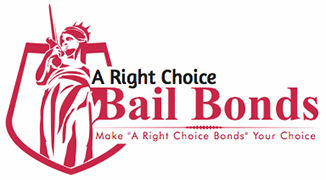 Going to jail is a scary experience, especially when you can be stuck in jail if you can’t provide a considerable sum of cash to the courts. In many cases, people don’t have enough money available to pay a standard bail. The good news is, there is help available to you in the form of a bail bond. With bail bonds, you have a lot of options to pay a bail that is otherwise unaffordable. Bail bonds also open up alternative ways to appease the courts. One of those alternatives is the property bond.
Going to jail is a scary experience, especially when you can be stuck in jail if you can’t provide a considerable sum of cash to the courts. In many cases, people don’t have enough money available to pay a standard bail. The good news is, there is help available to you in the form of a bail bond. With bail bonds, you have a lot of options to pay a bail that is otherwise unaffordable. Bail bonds also open up alternative ways to appease the courts. One of those alternatives is the property bond.
Property Bonds: The Basics
To understand property bonds, it is important to go over the essentials of a bond. A bond is a way to pay bail when you don’t have enough cash to pay it outright. A standard bond works kind of like a loan, but with some significant differences. A bond agent will front the cash for the bail, and you will pay a predetermined fee (usually a percentage of the bond). When you (or the defendant) meets the required court appearances, the bond agent is refunded their bail, but you still owe the agreed fee. If the court date is missed, you will be held accountable for the fee plus the total bail amount.
A property bond is a twist on the concept. Sometimes you might have enough property to work as collateral against a bail but not enough cash (even for a traditional bond fee). The court can approve a property bond instead. When this happens, the court takes a lien against your property. You don’t have to provide any cash at all. Instead, the lien is there. If you miss the court date, the court can foreclose on and sell your property to get the money you owe for the bail.
Property bonds are uncommon, and they have some stipulations. In order to get a property bond, the property in question will usually have to be worth considerably more than the set bail (often by twice as much). This is because the court has no guarantee that they can liquidate the property for its full value. It’s also important to understand that property bonds are not universally available. It is up to the discretion of the court.
Common Questions Regarding Property Bonds
What happens if more than one person owns the property?
This is one reason property bonds can be tricky. It is common for a property to have more than one owner. If that is the case, every person listed on the deed has to sign off on the property bond for it to be approved. While this does not mean that every owner is legally liable if the defendant misses their court date, they all stand to lose their property if that happens.
What happens if I fail to appear in court?
The purpose of bail is to incentivize defendants to meet their court dates. When the date is met, the bail is refunded to the defendant (or whoever paid bail). When a property bond is used to settle the bail, there is no refund available but the lien is removed from the property. A failure to appear in court gives the court the right to sell the property and keep whatever money is made from the sale, up to the amount set for the bail. If the sale doesn’t cover the full bail, the court can charge you the difference.
Property bonds only represent one of the many options available to meet bail and get a person out of jail. A Right Choice Bail Bonds is here to help you sort through those options. Contact us by phone at 337-706-9495 or through our website so we can help you secure immediate jail release.
